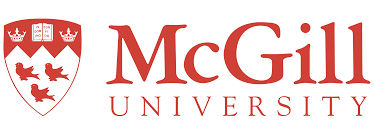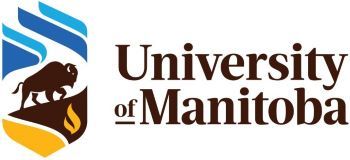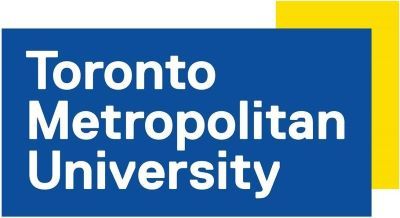15 Masters in Biomedical Engineering Courses in Canada- Apply Now!
The field of Biomedical is witnessing immense growth all over the globe, especially after the pandemic. Most organizations in Canada are on the lookout for skilled professionals from biomedical engineering to fill up the talent gap they have. This has thus increased the demand for biomedical courses in bachelor, master, and Ph.D.
The Master's courses in Biomedical Engineering in Canada are offered as Master's in applied sciences and MEng or Master's in engineering programs. Canada also has more than 20 top universities that provide 1 to 2-year programs, along with excellent scholarship and internship options. This is one of the many reasons why Canada has become a popular study destination for international students.
In this blog, we will learn more about the courses offered by the top universities, the cost of studying, eligibility criteria, and the admission process.
Why study the Biomedical Engineering in Canada?
There are numerous reasons why Canada is a popular destination to study and work. The country not just has the most advanced educational sector, but it provides ample job opportunities once the students complete their education. With a diverse culture and scenic landscapes, Canada does have a lot to offer to its students. It is one of those very few countries with low crime rates and welcoming and friendly people, and this makes students feel safe and secure.
Some of the other reasons why Canada is an ideal destination to pursue Masters in Biomedical Engineering are mentioned below.
- Canada finds a place in the 'Most Educated Countries' of the world. The government always spends wholeheartedly on the educational sector, providing the best and most up-to-date programs for the students.
- Canada is also known as immigrant-friendly. The country has seen more than 15 million immigrants in the past century and the government too is quite welcoming. It also happens to be the very first country to put forth a multicultural policy.
- The programs offered by Canadian Universities are top-notch and affordable. Most universities also provide internships and scholarships to international students.
- The Canadian study visa permits students to work for 20 hours a week, and the universities also provide placement opportunities upon course completion.
Masters in Biomedical Engineering in Canada: Course Highlights
Degree/ University |
Duration |
Average fees in CAD |
Course Type |
General Eligibility |
Exam required |
|
2 Years |
78506 CAD – Full Course Fee |
Full-time |
|
|
1 year to 1.5 years |
28877 CAD/Year |
Full time |
|
IELTS /TOEFL / PTE |
|
|
2.-3 Years |
18156 |
Full-time |
|
IELTS /TOEFL / PTE |
|
2-3 Years |
19,660 CAD per annum |
Full -time |
|
IELTS /TOEFL / PTE |
Dalhousie University |
2 years |
32269 CAD per year |
Full-time |
|
IELTS /TOEFL / PTE |
Types of Masters in Masters in Biomedical Engineering in Canada
The universities in Canada offer various programs for Masters in Biomedical Engineering, and the course duration of these programs can range between 1.5 years to 2 years. While a few programs are thesis-based, a few universities also offer non-thesis programs in biomedical engineering.
Some of the common programs students can opt for include,
- Master of Applied Science in Biomedical Engineering
- Masters in Biomedical Engineering
- MS in Biomedical Engineering
Best Universities for Masters in Biomedical Engineering in Canada
Canada is known for its biotech research sector and has many start-ups looking for talent in biomedical engineering. Studies have shown that more than 65% of the employees from this sector have job opportunities for graduates and postgraduates from biomedical engineering.
So, where can you pursue Masters in Biomedical Engineering in Canada? Let us have a look at the top universities.
University of Toronto – The University of Toronto has a QS World Ranking of 26, and the university offers MEng and MASc in Biomedical Engineering. MEng is a 2-year program where as the MASc is a three-year program based on a thesis. The focus areas of study of these programs include nanotechnology, biomaterials, Rehabilitation, and sensory systems. Students are also required to contact the supervisor before applying for the program.
The University of British Columbia – The University of British Columbia with the rank of #46 offers MEng and MASc programs with a course duration of 2-3 years. The focus areas of the program are biomechanics, and cellular and molecular engineering to name a few. Students who opt for the MASc program should contact the assigned supervisor before proceeding with the application.
McGill University – One of the top universities in Canada, McGill University offers an MEng program, and students can opt for a thesis or a non-thesis program. The university also has some excellent scholarship programs for international students.
The University of Ottawa – The University of Ottawa offers two-year programs in MEng and MASc. The curriculum of these programs includes telemedicine, biomechanics and biomaterials, medical instrumentation, and medical informatics. The students who wish to pursue MASc need to contact the supervisor before filling out the application.
Queen's University – Queen's University offers a 2 years master's program in biomedical engineering with the focus areas being biomaterials, tissue engineering, biomedical and intelligent systems, regenerative medicine, and more. Students can check out the official website for more information on eligibility and the scholarships offered.
Course Curriculum for Masters in Biomedical Engineering in Canada
The programs offered by universities for Masters in Biomedical Engineering in Canada are based on the thesis and the study modules can be based on the subjects mentioned below.
- Biomaterial
- Mechanics
- Neuroscience
- Physiology
- Anatomy
- Engineering Mathematics
- Data Structures etc
The Elective courses offered include,
- Robotics
- Medical Computing
- Biostatistics
- Computational Geometry
The core subjects and elective courses can differ from one university to another. Some of the specializations that are offered in Masters in Biomedical Engineering include,
- Biomechanics
- Rehabilitation Engineering
- Biomedical Systems & Devices
- Biomaterial & Tissue Engineering
Eligibility Criteria for Masters in Biomedical Engineering in Canada
The eligibility criteria to apply for Masters in Biomedical Engineering in Canada can vary from university to university and as per the program chosen. However, some of the basic requirements are mentioned below.
- A four-year undergraduate/bachelor's degree with engineering, biotechnology, or medicine as one of the subjects. A student with an equivalent degree and a relevant subject of study can also apply.
- Students should have a CGPA of 7.5 to 8.0 and a minimum of 70% - 75% in the undergraduate course. However, the top universities might ask for 80% and a CGPA of 8.5+.
- Applicants should have a 6.5 minimum in IELTS and 89 in TOEFL. Some top universities can also ask for an IELTS score of 7.0 or 95 in TOEFL.
- Supervisor’s approval is also required as they will be supervising the Master’s Thesis of the students.
Admission Requirements for Masters in Biomedical Engineering in Canada
Other than the eligibility criteria, the students are required to submit a few documents for the smooth processing of the application. Some of the documents required are listed below.
- Students need to submit valid and official copies of their educational certificates.
- Students should also submit at least two letters of recommendation, or as per the requirements put forth by the university.
- An updated resume should be submitted when applying for master's programs.
- Some of the supported documents that are required include a statement of purpose and a research proposal.
- Students who are not from a native English-speaking country should submit the scorecard for English Language Proficiency tests like TOEFL or IELTS.
Admission Process for Masters in Biomedical Engineering in Canada
Getting admission into the top university that offers Masters in Biomedical Engineering in Canada can be hard if you are not prepared well. The final decision to accept an application depends on the student's merit, the grades obtained in an undergraduate program, the resume, and scores of language proficiency tests.
Some universities allocate a supervisor for the MS or MASc programs, and the student might miss out on admission if the assigned supervisor is unavailable. Also, the GRE scores play an important role in the decision, and a few universities ask the students to fill in the scores during the process of online application.
Once the application is accepted by the university, an email with the letter of acceptance or acceptance offer is sent over. As per the present timelines, it can take anywhere between 2-4 months for the students to receive the letter of acceptance.
Along with the acceptance letter, the university also shares the documents that the student might require while applying for a study permit.
Cost of Studying for Masters in Biomedical Engineering in Canada
The cost of studying Masters in Biomedical Engineering in Canada includes the pre-arrival cost, the tuition fees, and the cost of living. Detailed explanations on each of these are added below.
Pre-Arrival Costs – The pre-arrival costs are the expenses incurred during the admission process. These costs include the application fees, fees paid for English language tests, Canada study visas, health insurance, and travel expenses.
Tuition Fees – The tuition fees for Masters in Biomedical Engineering in Canada can vary from one university to another, and can also change based on the specialization. However, it can range between CAD 15,000 to CAD 30,000.
Cost of Living – The cost of living includes expenses like house rent, food, transportation, books, and other bills students will have to spend during their stay in Canada. The expenses can vary based on where the student resides. The cost of living per annum can range from CAD 9,000 to CAD 12,000.
Scholarship and Financial Aid for Masters in Biomedical Engineering in Canada
Studying aboard might not be as easy as it sounds, and studying in a country like Canada can certainly be a costly affair. One of the major advantages of studying in Canada is the scholarships provided by the universities, especially for international students.
Details of some of the scholarships provided by the universities in Canada are listed below.
Name of the Scholarship |
The Stipend Provided |
Vanier Canada Graduate Scholarships |
37,800 up to 3 years |
BME Excellence Awards BME Davis Awards |
Merit-Based | One-time scholarship of CAD 10,000 |
Western Graduate Research Scholarship |
Merit-Based |
Ontario Graduate Scholarships |
11,280 CAD per session |
Delta Kappa Gamma World Fellowships |
Merit-Based & Varies |
Career Opportunities after Masters in Biomedical Engineering in Canada
Students who have an earlier work experience in the field of biomedical engineering can easily find jobs in various sectors like chemical, mechanical, biomedical, and rehabilitation. Canada has a more aged population than younger ones, and hence the demand for professional and skilled individuals in the field of biomedical engineering has rapidly increased.
The average salary professionals can expect in the field is $64,000 – CAD 67,000 every year. The pay for entry-level roles starts at CAD 52,500 per year.
Masters in Biomedical Engineering in Canada |
Average Annual Salary (in CAD) |
Agricultural Engineer |
88456 CAD |
Naval Architect |
112215 CAD |
Biomedical Engineer |
101093 CAD |
Food Processing Engineer |
73303 CAD |
Engineering Scientist |
110228 CAD |
Students who pursue Masters in Biomedical Engineering in Canada not only get an opportunity to advance their career but can earn a good salary in Canada and any other country too. Biomedical engineering is an upcoming field and there is a huge demand for talent in various organizations.
- Level of study
- Streams
- Countries
- Cities
- Fees
- Exams Accepted
- Course Duration
- Masters
- Clear All

Biological and Biomedical Engineering (M.Sc.)
McGill University, Canada
DURATION
1 Year 6 MonthsFEES
INR 122.84L/yrEXAMS
-INTAKE SESSION
FEB 2025

Master Of Applied Science in Biomedical Engineering (MASC)
The University of British Columbia, Canada
DURATION
1 YearFEES
INR 5.66L/yrEXAMS
-INTAKE SESSION
SEP 2024
More courses at The University of British ColumbiaView All
DURATION
1 Year 6 MonthsFEES
-EXAMS
-

Master of Science (Biomedical Engineering)
University of Alberta, Canada
DURATION
2 YearsFEES
-EXAMS
-INTAKE SESSION
-

Master of Applied Science in Biomedical Engineering
University of Ottawa, Canada
DURATION
2 YearsFEES
INR 35.22L/yrEXAMS
IELTS-6.5INTAKE SESSION
SEP 2024
More courses at University of OttawaView All
DURATION
2 YearsFEES
INR 35.22L/yrEXAMS
IELTS-6.5
DURATION
2 YearsFEES
INR 38.14L/yrEXAMS
IELTS-6.5
DURATION
2 YearsFEES
INR 38.14L/yrEXAMS
IELTS-6.5

Master of Engineering in Biomedical Systems
University of Victoria, Canada
DURATION
2 YearsFEES
INR 13.92L/yrEXAMS
-INTAKE SESSION
SEP 2024

Master of Applied Science, in Biomedical Engineering
Carleton University, Canada
DURATION
2 YearsFEES
INR 22.40L/yrEXAMS
IELTS-6.5INTAKE SESSION
SEP 2024

Master of Science in Biosystems Engineering
University of Manitoba, Canada
DURATION
2 YearsFEES
INR 12.00L/yrEXAMS
-INTAKE SESSION
SEP 2024
More courses at University of ManitobaView All

Biomedical Engineering (MASc)
Toronto Metropolitan University, Canada
DURATION
1 YearFEES
INR 16.56L/yrEXAMS
-INTAKE SESSION
SEP 2024
More courses at Toronto Metropolitan UniversityView All
Recommended articles for you
TRENDING SEARCHES
- Masters in Psychology in Canada
- Masters in Pharmacy in Canada
- Masters in Architecture in Canada
- Masters of Law in Canada
- Masters in Chemical Engineering in Canada
- Masters in Civil Engineering in Canada
- Masters in Economics in Canada
- Masters in Education in Canada
- Masters in Mechanical Engineering in Canada
- Masters in Computer Science in Canada
- University of Manitoba
- University of Toronto
- University Canada West
- University of Windsor
- University of Alberta
- University of Saskatchewan
- Algoma University
- University of British Columbia
- Trent University
- University of Ottawa
- Thompson Rivers University
- Atmospheric Studies in Canada
- Architecture Courses in Canada
- Astrophysics in Canada
- Arts Courses in Canada
- Architecture and Urban Environment in Canada
- Language in Canada
- Agriculture General Studies in Canada
- Agricultural Business and Operations in Canada
- Accounts and Finance in Canada
- Agriculture and Food Science in Canada
- Area Studies in Canada
- Advertising in Canada
- Animal Science in Canada
- Advanced Computing in Canada
- Archaeology Courses in Canada
- Architectural Engineering in Canada
- Agriculture Services in Canada
- Aerospace Engineering in Canada
- Architecture and Environmental Design in Canada
- Architectural Technology in Canada
- Medical Courses in Canada
- Masters in Marketing in Canada
- Accounting Courses in Canada
- Masters in Supply Chain Management in Canada
- Masters in Engineering Management in Canada
- Physiotherapy Courses in Canada
- Masters in Data Science in Canada
- Business Management Courses in Canada
- Masters in Management in Canada
- Data Science Courses in Canada
- Supply Chain Management Courses in Canada
- Biotechnology Courses in Canada
- Business Analytics Courses in Canada
- Finance Courses in Canada
- Management Courses in Canada
- Bachelors in Dentistry in Canada
- Bachelors in Civil Engineering in Canada
- Bachelors in Chemistry in Canada
- Bachelors in Business in Canada
- Bachelors in Architecture in Canada
- Bachelors in Electrical Engineering in Canada
- Bachelors in Automobile Engineering in Canada
- Bachelors in Design in Canada
- Bachelors in General Science in Canada
- Bachelors in Economics in Canada
- BA in Canada
- Bachelors in Environmental Engineering in Canada
- Bachelors in Dance in Canada
- Bachelors in Computer Science in Canada
- Bachelors in Commerce in Canada
- Bachelors in Education Learning in Canada
- Bachelors in Education in Canada
- Bachelors in Chemical Engineering in Canada
- Bachelors in Archaeology in Canada
- Bachelors in Biomedical Engineering in Canada
- Study in Canada
- Courses in Canada
- Universities in Canada
- Bachelors in Canada
- Masters in Canada
Disclaimer
All information provided on this page is for general use and upGrad Abroad is not responsible for any errors or omissions. The Universities involved in this Program are accredited/recognized in the countries where they are established. Relevant terms and conditions apply.Any action taken upon the information found on this website is strictly at your own risk.


